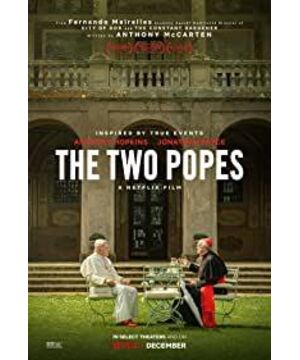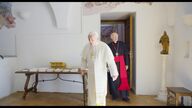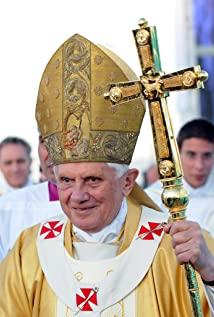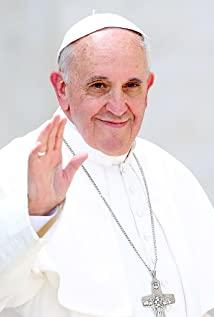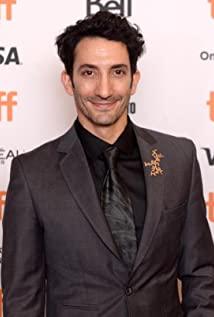Opening with a joke that the Supreme Pontiff is rebuffed by the disembodied voice of a travel agent when he tries to order a plane ticket by telephone, THE TWO POPES, directed by Brazilian Catholic Fernando Meirelles, who returns to filmmaking after 360 (2011), knows how to lighten the mood by dragging the consecrated into secular affairs, a feature distinguishes itself in Anthony McCarten's script, which gives much thought and tact in reimagining the conversations behind close curtains between Joseph Ratzinger (Hopkins), the German cardinal who becomes Pope Benedict XVI, and Jorge Mario Bergoglio (Pryce), the Argentinian cardinal who will become the incumbent Pope Francis after the former's surprising abdication.
Ratzinger, first appears as a man full of conceit and acts quite curt to Bergoglio during the first conclave in 2005, as he is a dead cert to the papacy. 7 years later, after being personally embroiled by the detrimental scandals, he invites Bergoglio to his summer residence, the Palace of Castel Gandolfo, while the latter is intent on resigning from his archbishop title, the former harbors an arrière-pensée which prompts him repeatedly parry the latter's request, instead, the two discuss at lengths about their different views on the church and God himself, as the topic goes personal and the mood is never far from cautiously convivial, although their chasm starts to cohere.
Then the pair is whisked to Vatican City, and it is in Michelangelo's Sistine Chapel where Pope Benedict reveals his unorthodox motive which takes Bergoglio aback, and it turns out that two must exchange their confessions and seek each other's absolution before they can reach an agreement, Although the spiky issue of the Pope's covering up of child molesters in the church is briefly alluded, it is plain no way for a fictional film to pin down the exact wording, which THE TWO POPES circumvents swimmingly.
Meantime, the subplot about Bergoglio's own past (a young version is played by Minujín), first shot in Black-and-White, limning how he finds his vocation and breaks his nuptial engagement, then goes into full color during Argentine's Dirty War days, manifests Bergoglio's own complicity in condoning the military atrocity in the name of saving the lives of his fellow priests, and the fallout, a touch-paper issue the film tackles with some sort of evasion, but overall, it expeditiously furnishes the film with the apposite material to add historical proportions to a contemporary and on-going hot button, albeit Ratzinger's counterpart salad days are conspicuously missing here.
As a conversation piece at large, Hopkins and Pryce's two-hander occupies the lion's share, and both are terrific to behold, Hopkins holds court in a less-obtrusive domineering mannerism that betrays a man wrestling with an ego dented by frustration, disillusion, even faint exasperation, and an onus he finds growingly inadequate to commit to, conveyed by even the subtlest gesture, his Ratzinger is a hallowed lost cause and a tired lion who can eventually elicit our sympathy in the face of his controversies.
When playing off Hopkins, Pryce is often submitted to gingerly reverence and reactive moderation, that is more opaque to decipher his own thoughts, but benefiting an uncanny physical resemblance and nailing the polyglot fluency, his Pope Francis, eventually, sails to the safe waters with his holy image almost intact, whether he is compromised by his past deeds or not, one might call THE TWO POPES a conventional biopic, but encumbered by the factual constraint, no one would expect it is to be anything else.
Also boasting the artifice of recreating the masterful verisimilitude of its Vatican location, which digital rendering is of great help, but to the eyes of true cognoscenti, the backdrop cannot sustain for a longer gaze (and the swift camera movement cunningly ensures that such an occasion is few and far between), THE TWO POPES comports itself satisfactorily with a winning formula and sterling cast, not to ruffle any feathers, but instead, catering to a wide demographic with self-esteem and a soupçon of humanity.
referential entries: Meirelles and Kátia Lund's CITY OF GOD (2002, 8.9/10), Meirelles's BLINDNESS (2008, 7.3/10).
View more about The Two Popes reviews


